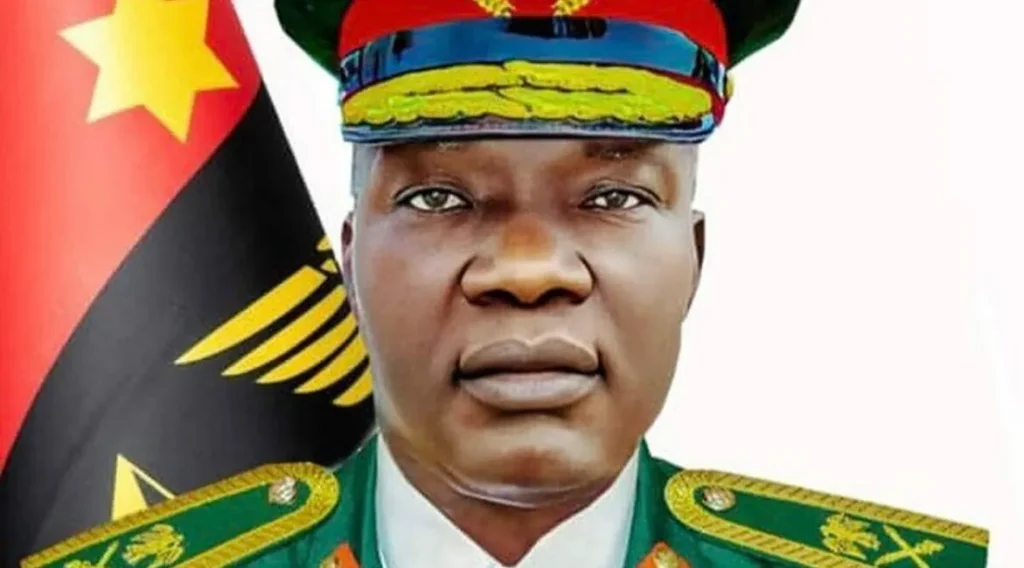Introduction
The Chief of Army Staff (COAS) holds a pivotal position within the Nigerian military, responsible for ensuring national security and overseeing the country’s armed forces. The recent health concerns surrounding Lieutenant General Taoreed Abiodun Lagbaja, the current COAS, have sparked significant public interest and speculation. This article delves into the ongoing trends related to his health, the implications for military operations, the broader context of military leadership in Nigeria, and potential strategies to address these challenges.
Recent Health Concerns
While the specifics of Lieutenant General Lagbaja’s health concerns are not extensively publicized due to privacy and security protocols, recent reports indicate that he has faced health challenges typical for individuals in high-stress leadership positions. These health issues are particularly relevant in the context of military leaders who operate in environments marked by constant pressure and demands.
Public Speculation and Media Coverage
The public’s interest in the health of military leaders can lead to increased speculation, particularly regarding their capability to lead effectively. Media coverage plays a crucial role in shaping public perceptions, often highlighting concerns about a leader’s health and its potential impact on military operations. This speculation can lead to anxiety among military personnel and the general public, creating a ripple effect throughout the military hierarchy.
Leadership and Decision-Making
The health of the COAS directly influences military strategy and operations. As the chief architect of military plans, any health-related setbacks could impair decision-making capabilities. Effective leadership in times of crisis is essential; therefore, the ability of the COAS to engage actively in strategic discussions and operations is critical.
Operational Continuity and Stability
In the event of health-related issues, the military could face challenges related to continuity. A sudden absence or incapacity of the COAS may necessitate a rapid transition in leadership, which could lead to uncertainty regarding military direction. This instability can affect troop morale and cohesion, as soldiers often look to their leaders for guidance and reassurance during challenging times.
Factors Contributing to Health Concerns
The Nigerian military operates in a high-stress environment, primarily due to the ongoing insurgency, banditry, and other security threats. The continuous pressure to respond effectively to these challenges can lead to burnout and health issues among senior leaders. The COAS must navigate complex and often dangerous situations, which can take a toll on both mental and physical health.
Demanding Work Schedule
The work schedule of the COAS is demanding, often requiring long hours, extensive travel, and involvement in critical decision-making processes. Such a schedule can lead to fatigue and increased susceptibility to stress-related illnesses. The cumulative effect of prolonged stress can significantly impact health, necessitating a focus on wellness and self-care.
Access to Medical Care
While the Nigerian military does have access to medical facilities, the level of care may not always meet the specific needs of high-ranking officials. Inadequate access to specialized medical attention can exacerbate health concerns, making it imperative for military leadership to ensure that appropriate healthcare resources are available.
Increased Transparency
To address public speculation regarding the health of military leaders, there is a growing call for increased transparency. Clear communication about the health of the COAS can mitigate speculation and foster public confidence in military leadership. However, this transparency must be balanced with the need for operational security and the privacy of military personnel.
Health Initiatives
The Nigerian military may need to implement comprehensive health and wellness initiatives designed to support the physical and mental health of its leaders. These initiatives can include regular health screenings, mental health support services, and wellness programs aimed at managing stress and promoting overall well-being.
Succession Planning
Effective succession planning is crucial to maintain stability within military leadership. The Nigerian military must establish clear protocols to ensure a smooth transition of power in the event of health-related issues. This planning should encompass identifying potential successors and ensuring they are prepared to take on leadership roles when necessary.
Mental Health Support
Addressing mental health concerns within the military is essential for sustaining effective leadership. Implementing mental health resources, such as counseling services and stress management programs, can help military leaders cope with the pressures of their roles. Creating a culture that prioritizes mental well-being can enhance overall military performance and resilience.
Historical Overview
The Nigerian military has a rich and complex history, marked by periods of both military rule and democratic governance. Understanding this historical context is essential for appreciating the current challenges faced by military leaders. Past military leaders have often contended with political pressures and public scrutiny, making the health of the COAS particularly relevant in discussions about military stability.
Evolving Role of the Military
In recent years, the role of the Nigerian military has evolved to address new security threats, including terrorism and organized crime. This evolution requires a robust and adaptable leadership structure capable of responding to dynamic challenges. The health of the COAS plays a crucial role in maintaining this adaptability and effectiveness.
Security Challenges
Nigeria faces numerous security challenges, including insurgency in the northeast, banditry in the northwest, and ethnic tensions in various regions. The health of the COAS can directly influence the military’s ability to respond effectively to these challenges. A capable and healthy leader is essential for devising strategies to combat these multifaceted threats.
Regional Stability
The stability of Nigeria is critical for the broader West African region. The Nigerian military plays a significant role in regional security, often participating in peacekeeping missions and joint military exercises with neighboring countries. The health of the COAS is, therefore, not only a national concern but also has implications for regional security dynamics.
Case Studies and Comparisons: Health Issues in Military Leadership Worldwide
Examining health issues faced by military leaders in other countries can provide valuable insights into the trends seen in Nigeria. For example, health-related concerns among military leaders in countries such as the United States and the United Kingdom have led to discussions about mental health support and wellness initiatives within their armed forces.
Lessons Learned
Analyzing case studies from other nations can offer lessons for the Nigerian military. Implementing best practices in health and wellness support can enhance the resilience of military leadership and improve overall operational effectiveness.
Recommendations for Improvement
Holistic Health Programs
Developing holistic health programs that encompass physical, mental, and emotional well-being is essential for military leaders. These programs should focus on stress management, physical fitness, and mental health support, fostering a culture of wellness within the military.
Leadership Training and Development
Investing in leadership training and development can prepare potential successors for the demands of the COAS role. This training should include not only military tactics but also skills related to health management, crisis response, and emotional intelligence.
Conclusion
The health and well-being of the Nigerian Chief of Army Staff are critical factors influencing the effectiveness and stability of the military. Ongoing trends regarding health concerns highlight the need for greater transparency, effective succession planning, and enhanced support for military leaders. As Nigeria continues to confront significant security challenges, prioritizing the health of its military leadership will be essential for maintaining operational readiness and public trust in the armed forces. By addressing these issues proactively, the Nigerian military can build a more resilient leadership structure, better equipped to navigate the complexities of contemporary security threats.
Future Outlook
Looking ahead, it will be essential for the Nigerian military to continue evolving its approach to health and wellness, leadership training, and strategic planning. Ensuring that military leaders are supported in their health and well-being will ultimately contribute to a more effective and responsive armed forces, capable of meeting the challenges of the future.

